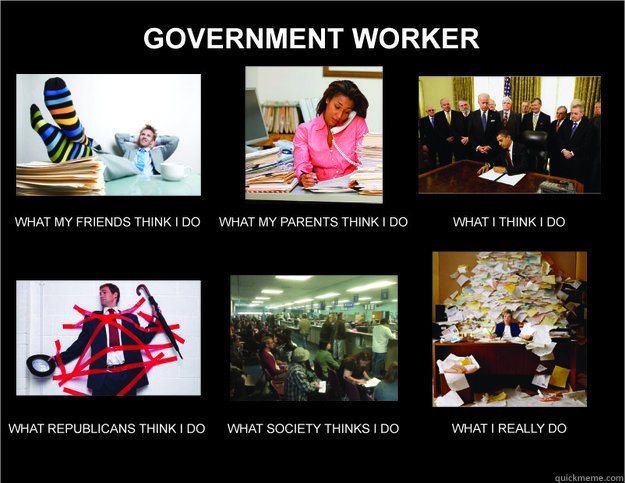Laid-Off Federal Workers: Finding State And Local Jobs – The Challenges And Realities

Table of Contents
Transferable Skills and Experience
Many skills honed in the federal government are highly valued in state and local government positions. The key is effectively showcasing your transferable skills to potential employers.
Identifying Relevant Skills
Federal employees often possess a wealth of transferable skills applicable to state and local roles. These include:
- Project Management: Experience managing complex projects with tight deadlines in a federal agency directly translates to similar roles in state departments of transportation, environmental protection agencies, or public health departments. For example, "managed a $5 million project, resulting in a 15% cost reduction and on-time delivery."
- Budget Analysis: Experience managing multi-million dollar budgets in a federal agency translates directly to similar roles in state departments of transportation, education, or finance. Quantify your achievements: "Successfully managed and balanced a $10 million budget, resulting in a 5% surplus."
- Policy Development: Expertise in developing and implementing federal policies is highly valued in state and local government, particularly in legislative and regulatory affairs. Showcase your experience by describing specific policy contributions and their impact.
- Communication: Excellent written and verbal communication skills are essential in any government setting. Highlight your experience crafting reports, giving presentations, and engaging with stakeholders. Example: "Successfully communicated complex technical information to diverse audiences, resulting in increased public understanding and support."
To effectively identify your transferable skills, consider utilizing online skill inventories and career counseling services. These resources can help you articulate your strengths and match them to specific state and local government job openings.
Tailoring Your Resume and Cover Letter
Your resume and cover letter are crucial for showcasing your qualifications. Tailoring these documents to each specific job posting is vital.
- Highlight Transferable Skills: Use keywords from the job description and quantify your achievements with concrete examples whenever possible.
- Use Action Verbs: Start your bullet points with strong action verbs to highlight your accomplishments.
- Focus on Results: Emphasize the impact of your work in previous roles.
- Customize for Each Application: Don't use a generic resume and cover letter. Adapt your application materials to reflect the specific requirements and priorities of each job.
Career services offices and professional resume writers can provide valuable feedback and assistance in refining your application materials.
Navigating the Application Process
The application process for state and local government jobs can differ significantly from the federal system.
Understanding Different Application Systems
State and local governments use various online portals and application systems. These may include:
- State-Specific Job Portals: Each state usually has its own online job portal for government positions.
- Municipal Job Boards: Cities and counties often have their own job boards as well.
- Civil Service Exams: Some state and local government positions require passing a civil service exam.
Timelines and processes can also vary significantly. Be prepared for potentially longer application processes compared to the federal system.
Networking and Making Connections
Networking is essential in securing a state or local government job.
- Attend Industry Events: Networking events are excellent opportunities to connect with individuals working in state and local government.
- Utilize LinkedIn: LinkedIn is a powerful tool for connecting with professionals in your field and learning about job opportunities.
- Reach Out to Former Colleagues: Your network of former colleagues might have valuable insights and connections.
Professional organizations and alumni networks can also provide valuable networking opportunities.
Salary and Benefits Comparisons
Salary and benefits packages in state and local government can differ from federal positions.
Understanding Potential Salary Differences
Several factors influence salary levels:
- Location: Salaries can vary significantly based on geographic location (cost of living).
- Position Level: Entry-level positions naturally have lower salaries than senior-level roles.
- Experience: Years of relevant experience significantly impact your earning potential.
Websites like Salary.com and Glassdoor can provide valuable salary data for comparison.
Comparing Benefits Packages
Benefits packages also vary between federal and state/local governments. Key differences may include:
- Retirement Plans: State and local retirement plans may differ from the federal Thrift Savings Plan (TSP).
- Health Insurance: Health insurance coverage options and premiums can vary.
- Paid Leave: The amount of paid vacation, sick leave, and other paid time off can differ.
Carefully compare the benefits packages of different opportunities to ensure they align with your needs.
Overcoming Common Challenges
Transitioning to a state or local government job presents specific challenges.
Dealing with Geographic Limitations
Relocation may be necessary to find a suitable position. Consider:
- Remote Work Options: Many government positions now offer remote work opportunities.
- Job Boards with Location Filters: Use job boards that allow you to filter by location.
Explore opportunities in various locations to expand your options.
Competing with Other Candidates
Competition for state and local government positions can be intense. To stand out:
- Craft a Strong Application: A well-written resume and cover letter are crucial.
- Highlight Unique Skills: Emphasize skills and experience that set you apart from other candidates.
- Demonstrate Passion for Public Service: Show your commitment to serving the public good.
Persistence and adaptability are key in navigating the job search process.
Conclusion
Transitioning from a federal to a state or local government job requires careful planning and a strategic approach. Identifying transferable skills, effectively tailoring your applications, and networking strategically are crucial for success. Remember to research salary and benefits, and be prepared to address potential geographic limitations and competition. By proactively researching state and local government job opportunities and utilizing the resources mentioned in this article, laid-off federal workers can significantly increase their chances of securing a new position. Persistence and adaptability are key; don't let this challenge deter you from your search for a fulfilling laid-off federal worker job.

Featured Posts
-
 Espn Crews Heartfelt Farewell To Cassidy Hubbarth
Apr 28, 2025
Espn Crews Heartfelt Farewell To Cassidy Hubbarth
Apr 28, 2025 -
 Federal Worker Job Transition State And Local Employment Opportunities And Obstacles
Apr 28, 2025
Federal Worker Job Transition State And Local Employment Opportunities And Obstacles
Apr 28, 2025 -
 Walk Off Win For Pirates Yankees Fall In Extra Innings
Apr 28, 2025
Walk Off Win For Pirates Yankees Fall In Extra Innings
Apr 28, 2025 -
 International Figures Attend Pope Francis Funeral Mass
Apr 28, 2025
International Figures Attend Pope Francis Funeral Mass
Apr 28, 2025 -
 Trumps Time Interview Insights On Canada China Relations And Presidential Term Limits
Apr 28, 2025
Trumps Time Interview Insights On Canada China Relations And Presidential Term Limits
Apr 28, 2025
